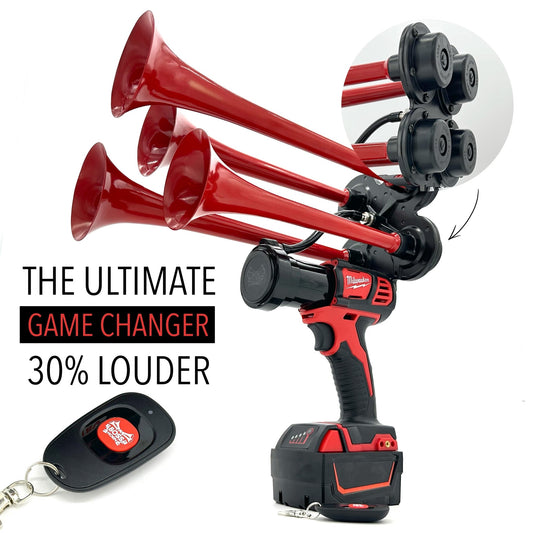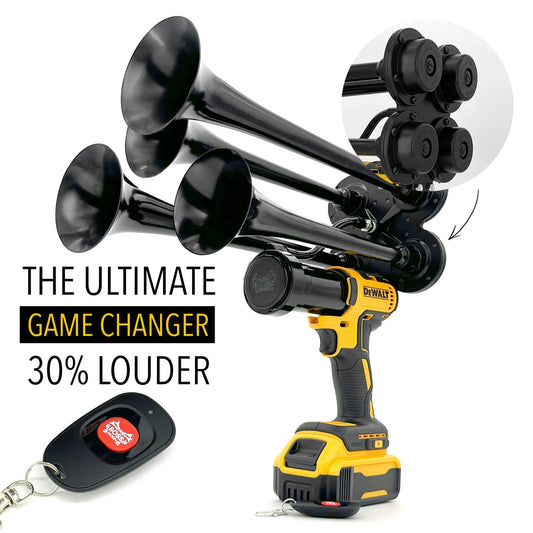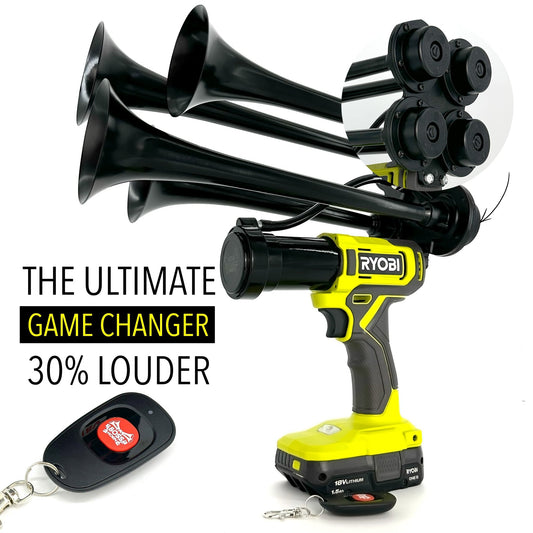According to a recent study, the average cost of a replacement for the auditory device commonly found in vehicles can be quite surprising. The humble car horn has been an essential safety feature for as long as automobiles have been in existence. With its unmistakable sound, the horn acts as a universal warning signal, alerting other drivers and pedestrians to potential hazards on the road. However, the cost of this simple yet vital component may catch many off guard.
The concept of the car horn dates back to the early 20th century when automotive innovators recognized the need for a standardized warning system. Originally, car horns were manually operated by means of a rubber bulb attached to a metal horn. As technology advanced, electric horns became the norm, providing drivers with a more convenient and reliable means of alerting others on the road. Today, modern vehicles are equipped with various types of horns, ranging from single-tone to multi-tone models, each designed to communicate different messages effectively.
As cars have become more sophisticated, so too have the options available when it comes to car horns. From the classic honk to the melodious musical horns, drivers now have a plethora of choices to customize their auditory warning system. However, this increase in variety also means an increase in the price range of car horns.
While car horns are essential for safety, their price can sometimes be an unexpected expense for drivers. However, there is a solution for those looking to replace their car horn without breaking the bank. Many automotive retailers now offer affordable aftermarket options that provide comparable functionality and sound quality to original equipment manufacturer (OEM) car horns. These affordable alternatives can often be installed by the vehicle owner themselves, saving on costly mechanic labor fees.
Considering the vital role it plays in ensuring road safety, the cost of a car horn is a small investment for drivers. It serves as a reminder that even the simplest components of a vehicle can have a significant impact on overall safety. So, whether opting for a budget-friendly aftermarket option or splurging on a custom musical horn, drivers must recognize the importance of investing in a reliable car horn to ensure their own safety and that of others on the road.
How much does a car horn cost?
Types of Car Horns
When it comes to car horns, there are different types available on the market. Each type varies in terms of sound, quality, and price. Here are some commonly found types of car horns:
- Air Horns: These horns are known for their loud and powerful sound. They use compressed air to produce a loud noise and are often used in trucks and larger vehicles. Air horns are generally more expensive due to their high performance.
- Electric Horns: Electric horns are the most common type and are found in most vehicles. They work by using an electromagnet to vibrate a diaphragm, creating sound waves. Electric horns are relatively affordable and offer a decent level of sound.
- Compact Horns: As the name suggests, compact horns are smaller in size compared to other types. They are an ideal option for vehicles with limited space. Although compact horns are smaller, they still provide a loud and clear sound. These horns are often more budget-friendly.
Factors Affecting Car Horn Prices
Several factors can influence the price of car horns. It is important to consider these factors before making a purchase:
- Brand: The brand of the car horn can have a significant impact on its price. Well-known and reputable brands often tend to be more expensive due to their quality and reliability.
- Sound Output: Car horns with higher sound output generally come with a higher price tag. If you're looking for a horn with a louder and more attention-grabbing sound, be prepared to pay a bit more.
- Material and Build Quality: The material and build quality of the car horn can also affect its price. Horns made from durable materials like metal are likely to cost more than those made from plastic.
- Installation Complexity: Some car horns require professional installation, which can add to their overall cost. On the other hand, plug-and-play horns are relatively easier to install, making them more budget-friendly.
Price Range and Statistics
The price range for car horns can vary depending on the type, brand, and features. On average, electric horns are available for around $10 to $30, while air horns can cost between $50 to $200. Compact horns fall within the price range of $15 to $50.
According to recent statistics, the majority of car horn purchases fall within the $20 to $50 price range. This suggests that most car owners opt for affordable yet reliable options when it comes to horn replacements or upgrades.
https://youtube.com/watch?v=qmk0RqqyHVs
FAQ: Car Horns
1. How much does it cost to replace a faulty horn?
Replacing a faulty car horn can vary in cost depending on various factors. These include the make and model of the vehicle, the type of horn being replaced, and the labor charges of the mechanic or service center. It is always recommended to consult with a professional to get an accurate estimate on the cost of replacing a faulty horn. Important information includes the cost variations based on car make and model, the different types of horns available, and the importance of consulting a professional for accurate estimates.
2. Can I install a louder horn in my car?
Yes, it is possible to install a louder horn in your car for various reasons such as safety or personal preference. There are different types of aftermarket horns available in the market that are louder than the original horns installed in most vehicles. However, it is crucial to consider legal limitations and any noise pollution regulations in your area before installing a louder horn. It is also recommended to seek professional help during the installation process to ensure proper installation and compatibility with your vehicle. Important information includes the availability of aftermarket louder horns, legal considerations, and the necessity of seeking professional assistance during installation.
3. Are there any environmental concerns regarding car horns?
While car horns play an important role in alerting others in certain situations, they do have environmental considerations. The repetitive and excessive use of car horns can contribute to noise pollution, which can have adverse effects on public health, wildlife, and overall quality of life. It is important for drivers to use their car horns responsibly and follow regulations regarding horn usage. Additionally, there are initiatives and campaigns promoting horn-free zones and encouraging drivers to minimize unnecessary horn honking. Important information includes the environmental impact of excessive horn usage, potential effects on public health, and the existence of initiatives promoting responsible horn usage.
4. How can I prolong the lifespan of my car horn?
To extend the lifespan of your car horn, there are a few maintenance practices you can follow. Firstly, keep your car's electrical system in good condition as electrical issues can affect the functioning of the horn. Regularly check the horn's wiring for any signs of damage or corrosion, and promptly address any issues. Additionally, ensure that the horn is protected from water and moisture to prevent damage. Lastly, avoid excessive and unnecessary use of the horn to reduce wear and tear. Important information includes maintaining the car's electrical system, checking for wiring damage, protecting the horn from moisture, and minimizing unnecessary horn usage.
5. Can I customize the sound of my car horn?
Yes, it is possible to customize the sound of your car horn, allowing you to add a personal touch to your vehicle. There are various aftermarket horn options available that offer different sounds, from musical tones to unique sound effects. However, it is essential to check local regulations regarding horn sound levels and noise pollution restrictions before making any modifications. Additionally, it is recommended to have the customization done by a professional installer to ensure proper installation and compatibility with your vehicle. Important information includes the availability of aftermarket horns with customized sounds, the importance of checking local regulations, and the necessity of professional installation for customization.
Conclusion
In conclusion, car horn prices can vary depending on various factors. The price range for car horns typically starts from around $10 and can go up to $100 or more. Factors such as brand, quality, features, and installation requirements play a significant role in determining the price of car horns.
It's important to note that investing in a good quality car horn is essential for safety on the road and loud enough to grab attention. While some budget-friendly options may suffice for basic functionality, investing in a higher-priced car horn can provide better sound quality, durability, and longevity. Furthermore, additional features such as different horn tones or compatibility with vehicle alarm systems can also impact the cost.
When considering purchasing a car horn, it is advisable to research different brands and models to find the one that best suits your needs and budget. Reading customer reviews and seeking recommendations from trusted sources can help in making an informed decision.
Overall, car horn prices vary considerably, and it's important to balance quality, functionality, and budget when making a purchase. Remember, a reliable and loud car horn is a crucial safety feature that ensures effective communication on the road.














